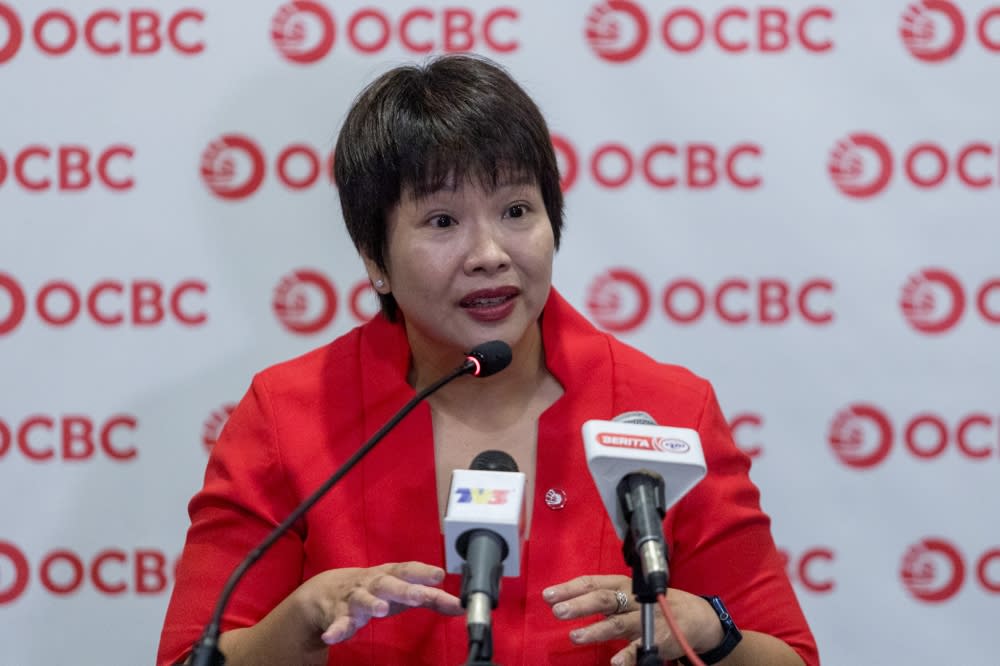OCBC sees inflation due to slow wage growth hurting middle-income Malaysians too now

KUALA LUMPUR, Jan 23 — Inflation is hitting not just low-income Malaysians but those in the middle-income groups too, primarily due to the sluggish growth in their salaries.
OCBC Treasury Research chief economist Selena Ling said that while private consumption is “fairly healthy”, the failure of nominal wages to keep pace with inflation places a tangible burden on a substantial portion of the Malaysian population.
“The private consumption has been fairly healthy but the inflation is a bugbear, especially for the lower to middle class Malaysians.
“Because if your nominal wages are not keeping pace with inflation, and the headlines suggest that the inflation looks quite mild but I think inflation is a lot higher than what the headline would suggest,” she told reporters during OCBC’s 2024 economic outlook here today.
Ling said cost of living issues is likely to persist despite efforts to diversify and adopt strategies such as “China Plus One”.
The “China Plus One” strategy is a calculated move for nations to find alternative sources in the supply chain to reduce dependency on China in manufacturing.
Ling said that diversification is essential, but comes at a cost, leading to higher business expenses that could be passed on to the end user, worsening inflationary pressures.
“I think there is that part of the cost of living issues that is basically here to stay. You can say China Plus One diversifies, but it all comes at a cost.
“It means higher business costs in general and business costs, I think to a certain extent will be passed on to the end consumers. So inflation is the rate of growth of prices,” she said.
She said that Malaysia is not in a deflationary period, contrary to some other Asian countries where prices are falling, such as China.
Ling added there is also a potential impact on economic growth because the momentum is slowing down.
She said that if growth slows, inflation may continue to pose challenges, especially for lower-income households and vulnerable workers.
“Inflation will continue to be a little bit of a bugbear, especially to the lower income households and more vulnerable workers.
“Then the question, of course, is now with Padu in place if they really do the targeted subsidy rationalisation. So from a high-level economic sense, it makes sense because you do not want to give blanket subsidies,” she said.
Padu — the Malay abbreviation for the Central Database Hub – is the government’s most comprehensive database on individual and household profiles and aims to enable targeted policy implementation to balance Malaysia’s fiscal position.
Commenting on fiscal consolidation strategies, Ling suggested that agencies and foreign investors would closely monitor the direction in which the government is moving.
She also highlighted the importance of managing the transition smoothly and pointed to Singapore as an example where targeted subsidies for lower-income households are well-accepted.
“Singapore has always been very clear, the subsidies they give are targeted at lower income households. In fact, they try to be very progressive.
“They say we tax the rich more, we give more to the poor, and people generally are quite accepting of that. They understand the rationale for it,” she said.
Asked about the outlook for the ringgit against the US dollar, Ling sees it stabilising and predicts a range of RM4.54 to RM4.58 by year-end, due the anticipation of the monetary policy staying constant throughout the entire year.
“We are calling for a RM4.54 to RM4.58 range by the end of this year. Looks aggressive but I think we did a survey of the street.
"I think most of the banks are calling for around RM4.45. So we do expect that the linkage should stabilise a little bit now,” she said.



